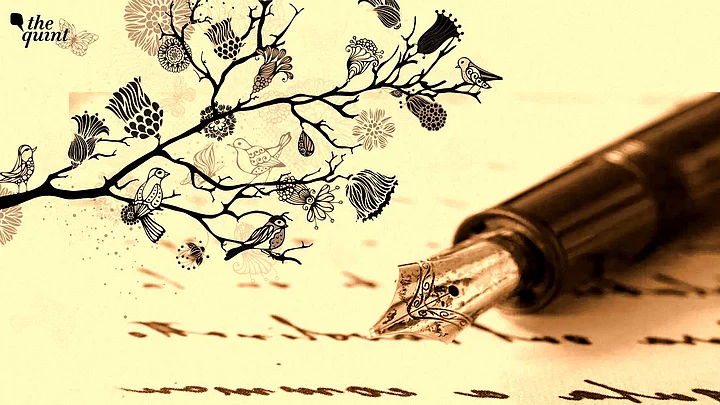Poetry is the queerest thing that happens to a culture—with the power to capture the center and yet exist at the margins. It is where the magic takes place, boundaries are pushed and systems evolve. Culturally, the marginal unit is one that changes language, structures, and how we make sense of the world.
In a global situation where the unraveling ecological emergency entwined with a set of overlapping crises, often termed polycrises, damaging any prospect of human existence, poetry with its hold at the margins, offers a promise, or at least a possibility.
Author Rob Hopkins in his book From What is to What if: Unleashing the Power of Imagination to Create the Future We Want, argues that we do have the capability to effect dramatic change but we’re failing because we’ve largely allowed our most critical tool to languish: human imagination. Poetry conserves imagination—shared equally between the poet and the reader.
The Power of Words in Driving Climate Action
The climate movement over the years has become significantly prominent —tirelessly campaigning for initiatives, discourses, and policies that address the causes and mitigate the impact of climate change. Yet the dominant policy approach has been linear and limited in action, missing the urgent need for a fundamental cultural transformation of mindset—the one founded upon care.
Richard Louv in his book The Nature Principle: Reconnecting with Life in a Virtual Age says, "We cannot protect something we do not love, we cannot love what we do not know, and we cannot know what we do not see. Or hear. Or sense." Poetry's interplay of cognition, creativity, and care without letting go of the complexity, can lead the way to truly sense, know, love, and hopefully protect.
Poets like Mary Oliver left behind a reservoir of poetry that talks about being with nature. Her work is a form of advocacy if one looks at it from an ecocritical lens—but it is also much more than that. It is immersive and experiential. It is a way of connecting with nature through wonderment and curiosity—faculties responsible for the most critical innovations.
"Listening to Mary Oliver's poems while attending to different senses during the nature walk took me back to my childhood, it was healing in ways I cannot articulate," says Vishal, a participant of 'A Lyrical Walk' by Dillipoetry—a literary space that hosts poetic healing forest walks based on the Japanese concept of Shinrin-yoku (literally, forest bathing) in the city forests of New Delhi.
"When it is time, we will herd into the bunker of the earth/ to join the lost animals—pig-footed bandicoot, giant sea snail, woolly mammoth. No sound of chainsaws, only/ the soft swish of dead forests, pressing our heads/ to the lake’s floor, a blanket of leaves to make fossils/ of our femurs and last suppers," cautions Tishani Doshi in her absurdly visual poem 'Species'.
The poem sets up a museum in the future exhibiting the remnants of our extinct species, stressing one to question the 'supreme' humankind's many 'feats'. With its innate ability to offer empathy, a poem such as this, catapults one out of complacency and holds the capacity to shock one into action if need be.
The question is how can poetry be made accessible so that it's not an abstract, elusive space and continues to nurture the center and the margins in their fight and their beauty.
How Poetry Can Be an Agent for Change for Issues Plaguing Planet Earth
"Mixing poetry with a range of reflective tools in some of the heavy discussions on the systemic impacts of climate crisis has been transformative—both for participants and facilitators. Often, the succinctness of a poem captures all that what a great reportage cannot," says Vibhuti, a team member at Youth Alliance, which organises EarthShastra, a leadership development program to learn about the inner and systemic dimensions of climate change.
"We know the land/ is disappearing beneath the sea, islands swallowed like prehistoric fish. We know we are doomed, / done for, damned, and still/ the light reaches us, falls on our shoulders even now,/ even here where the moon is/ hidden from us, even though the stars are so far away." observes Dorianne Laux in her poem 'Evening'.
Poetry offers a wide-ranging spectrum of responses to us to engage with— from melody, and oneness to protest and resistance to horror and shock, and sometimes, a faint light on our shoulders.
(Rachit Sharma is a poet and facilitator. He designs and facilitates poetry and leadership development workshops for the youth. This is an opinion piece and the views expressed above are the author’s own. The Quint neither endorses nor is responsible for the same.)
